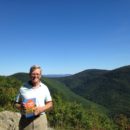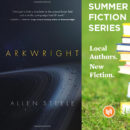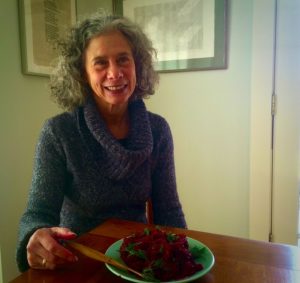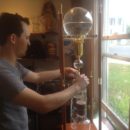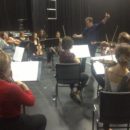There’s no way around it: New England is at its “New England-iest” right now. Fall foliage is peaking. Apples and pumpkins are everywhere.
So, what better time to go for a hike in the woods? You’ll find some great hikes all around the Berkshires, according to Lauren Stevens, the author of “50 Hikes in the Berkshire Hills,” which came out earlier this year. With maps and photos and narrative descriptions, it’s a practical guide to what Stevens considers some of the best day hikes in the region.
On a recent hike in the Mount Greylock Reservation, Stevens talked about what he hopes to communicate to people who use his book.
Click the audio player above to hear Lauren Stevens’ conversation with New England Public Radio’s Henry Epp.
